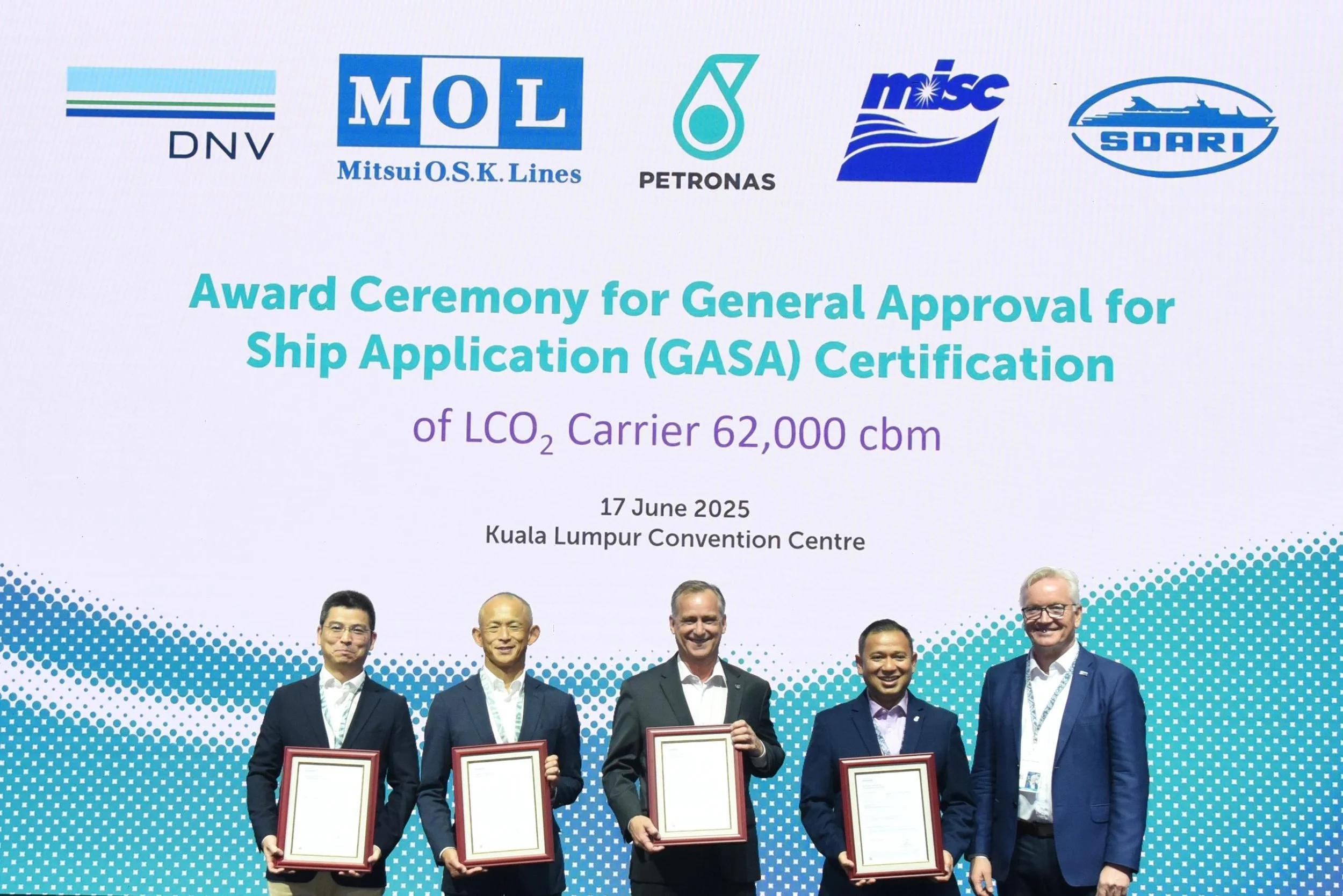DNV approves new LCO2 carrier design
DNV has awarded a General Approval for Ship Application (GASA) certificate to Mitsui O.S.K. Lines, Ltd., (MOL), MISC Berhad (MISC), PETRONAS CCS Ventures Sdn. Bhd. (PCCSV) and Shanghai Merchant Ship Design and Research Institute (SDARI), for their jointly-developed 62,000 cubic metres (cbm) liquid carbon dioxide (LCO2) carrier design.
This milestone GAS award, which took place reently in Kuala Lumpur (pictured) builds upon an Approval in Principle (AiP) awarded by DNV in 2023 and highlights the growing role of Carbon Capture and Storage (CCS) in Asia’s decarbonisation efforts. The vessel design includes several innovative features designed to enhance the long-haul transport of LCO2. A key part of the design is the cargo containment system, which utilizes advanced materials for greater safety and efficiency, and also includes a reliquefaction system for pressure and temperature regulation. Additional elements of the design include: an energy-saving propulsion system, optimised hull design, and LNG as fuel to boost fuel economy and environmental performance.
CCS is gaining momentum as a promising solution to help countries transition to a low-carbon future across Asia Pacific. Several countries, including Malaysia, Australia, Japan, and Singapore, are investing in the development of infrastructure, launching projects, and forging cross-border partnerships to accelerate CCS deployment.
Daisuke Fujihashi, General Manager, Carbon Solutions Business Development Unit, Mitsui O.S.K. Lines, Ltd. said: “The LCO₂ carrier is an indispensable component in building a cross-border CCS value chain across the Asia-Pacific region. This GASA certification awarded by DNV not only demonstrates the feasibility of safe and efficient CO2 transport but also marks a significant step forward in the transition toward a decarbonised society, backed by internationally recognised design credibility.”
Zahid Osman, President and Group CEO of MISC said: “As a critical enabler, LCO₂ carriers help address one of the biggest gaps in the CCS value chain, particularly when emitters lack access to nearby sequestration sites. By ensuring safe and efficient maritime transport and storage of CO₂, we play our part in managing societal emissions in a practical and scalable way.”
Antony M Dsouza, Senior Vice President & Regional Manager, Southeast Asia, Pacific & India, Maritime at DNV, said: “LCO2 carriers are a vital link in the emerging CCS value chain, enabling the safe and efficient transport of captured carbon across borders. With storage and capture capacity expected to quadruple by 2030, scalable and reliable ship designs will be key to unlocking this growth.
“Through this collaboration, we are proud to bring together DNV’s technical expertise and our partners’ innovative drive to support the development of a robust carbon transport infrastructure for the region.”

